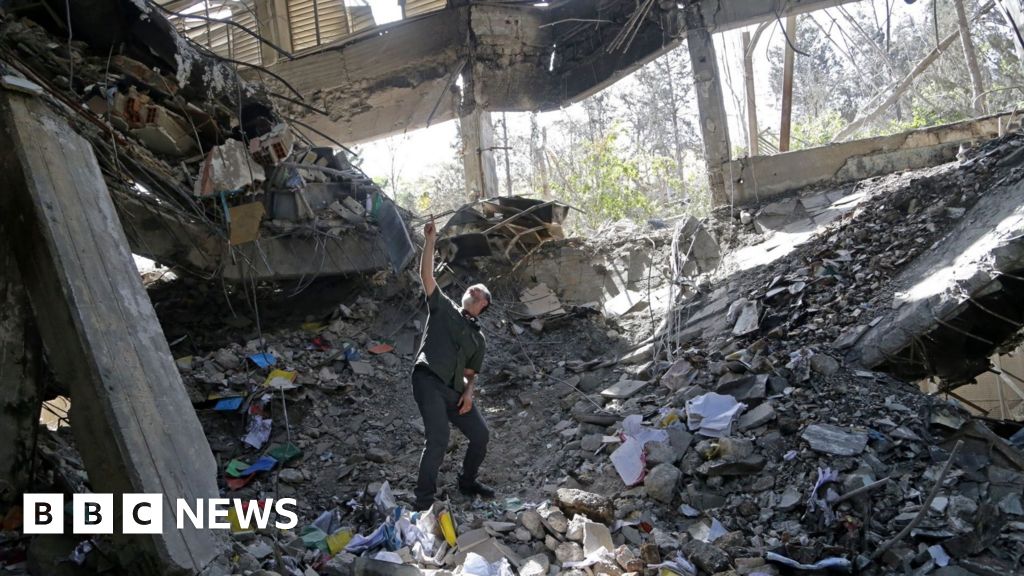For me, hell was not the moment Israel attacked; hell was the moment they wouldn't open the door [of the cell] for us, Motahareh Goonei recalls in an exclusive interview with the BBC. A political activist, Goonei was in solitary confinement in Iran's notorious Evin Prison when it was hit in a targeted attack by Israel on 23 June.
Satellite imagery, witness accounts, and verified footage obtained by BBC News Persian reveal new details of the attack in the closing hours of the Israel-Iran war and of those who died.
The high-security complex, perched on the northern edge of Tehran, has held thousands of political prisoners over the past half-century. On that day in June, the prison became the site of the deadliest Israeli strike on Iranian soil in terms of civilian casualties.
Iranian authorities say 80 people were killed—among them prison staff, inmates, medical workers, visitors, and residents of nearby neighborhoods. In a report published on 14 August, Human Rights Watch said that Israeli air strikes on the prison were unlawfully indiscriminate and amounted to an apparent war crime.
The Israel Defense Forces (IDF) said the reason for the attack was that the facility was being 'used for intelligence operations against Israel'. Goonei describes how she felt certain she would die during the explosions, expressing grief and shock over the chaos that ensued.
BBC analysis indicates Israel attacked Evin with at least six projectiles, damaging at least 28 buildings inside the complex.
There are serious concerns about the situation of transgender prisoners. No one knows where these prisoners are now, commented Reza Shafakhah, a lawyer who has been following the situation of transgender prisoners in Iran.
The implications of this attack and the ongoing humanitarian crisis underscore the complex dynamics and ongoing tensions in the region.
Satellite imagery, witness accounts, and verified footage obtained by BBC News Persian reveal new details of the attack in the closing hours of the Israel-Iran war and of those who died.
The high-security complex, perched on the northern edge of Tehran, has held thousands of political prisoners over the past half-century. On that day in June, the prison became the site of the deadliest Israeli strike on Iranian soil in terms of civilian casualties.
Iranian authorities say 80 people were killed—among them prison staff, inmates, medical workers, visitors, and residents of nearby neighborhoods. In a report published on 14 August, Human Rights Watch said that Israeli air strikes on the prison were unlawfully indiscriminate and amounted to an apparent war crime.
The Israel Defense Forces (IDF) said the reason for the attack was that the facility was being 'used for intelligence operations against Israel'. Goonei describes how she felt certain she would die during the explosions, expressing grief and shock over the chaos that ensued.
BBC analysis indicates Israel attacked Evin with at least six projectiles, damaging at least 28 buildings inside the complex.
There are serious concerns about the situation of transgender prisoners. No one knows where these prisoners are now, commented Reza Shafakhah, a lawyer who has been following the situation of transgender prisoners in Iran.
The implications of this attack and the ongoing humanitarian crisis underscore the complex dynamics and ongoing tensions in the region.


















